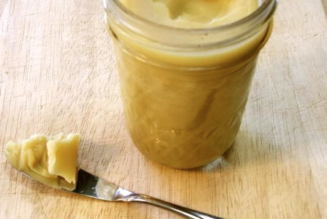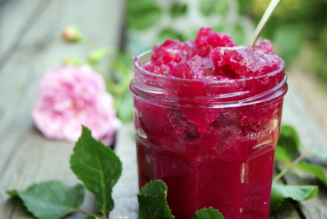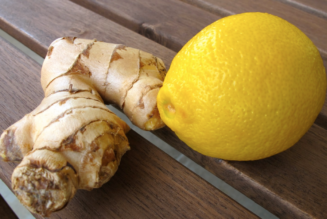Transitioning Into Spring Season
The transition between seasons welcomes a new change and this new change invites a different way of life from the old season by entering afresh into the next season. Spring is a season of growth and new potential. In fact, spring is considered the king of all seasons. Of relevance, in the Bhagavad Gita – 11th chapter, Krishna while stating his strength says, “among all the trees I am the sacred pippala [Bodhi tree] and of the season – I am Spring.” This is because spring is the season in which all of nature wakes up as the birds sing, flowers bloom, and people generally feel energized as we emerge from winter. In essence, spring is a time of growth and a time to begin a new lifestyle. However, before adapting to a new way of life, we must first appreciate the qualities of spring and adapt in accordance.
Qualities Of Spring – “Moisture”
Spring can be likened to the freshness of water from the recently melted snow of winter. Because of this, there is still much moisture in the atmosphere and kapha [which is primarily water and earth] tends to be aggravated during spring season. As a result of all this moisture, excess accumulation of kapha within the body begins to liquefy and run out of the body as many people experience “spring fever” and allergies this time of year.
Ayurvedic Remedies For Spring Allergies – Madhuri Melanie Phillips
It is a known fact that spring is the time of year for seasonal allergies. As the trees start to bloom and the pollen is released into the atmosphere, allergy sufferers begin their annual ritual of sniffling and sneezing. Each year, 58 million Americans fall prey to seasonal allergic rhinitis, more commonly known as “hay fever”. Furthermore, during spring the climate gets warmer and the heat reduces the digestive power of body. As a result, kapha increases which leads to various conditions like cough, cold, allergies, sinusitis, and indigestion to name a few. Ayurveda, the ancient science of life, has the solution. Ayurveda explains the concept of Ritucharya. In Sanskrit, the word “Ritu” means “seasons” and the word charya means “to follow a routine”. Hence, Ritucharya is the Seasonal Routine and by following a seasonal lifestyle & diet routine, people can prevent certain seasonal ailments and can ultimately have a healthy life . As per Ayurveda, the duration from mid-March to mid-May constitutes the Vasant Ritu or Spring season.
Lifestyle Recommendations
Do’s
The goal during spring season is to pacify kapha with foods that are light and easily digestible. Foods that are particularly bitter, pungent, and astringent as these tastes are considered kapha pacifying – or that which helps to reduce kapha.
Organic Kapha Churna Stimulating Spice Mix
Ready-to-use spice mixtures satisfy the six ayurvedic tastes considered essential for balance. Organic Stimulating Kapha Churna includes ginger, coriander and turmeric.
Don’ts
Avoid food which are heavy and oily while minimizing tastes which are sweet, sour and salty – as these flavors increase kapha. Instead, we should consider foods which are pungent, bitter, astringent – since these tastes naturally help to reduce kapha.
Examples Springtime foods – which help pacify kapha
- Legumes: split pea, red lentils, chickpeas, pinto beans
- Grains: amaranth, barley, buckwheat, corn, millet, oats, quinoa, rye
- Fruits: apples, apricots, berries, cherries, mangoes, peaches, pomegranates, pears
- Veggies: artichoke, asparagus, beets, broccoli, carrots, okra, spinach
Diet
It is advised to have easily digestible food which are low in calories during the spring season since the digestion power of “Agni” is diminished. Ayurveda believes that all diseases are primarily due to a faulty digestion. It is also now well understood that the gastrointestinal system is a major organ of immunity.
Organic Digest Tone
Supports digestive system and elimination; assists body in absorbing nutrients; high-quality antioxidant; wide range of benefits.
Herbal Di-Gest
Supports improved digestion and balanced appetite; helps with gas, bloating, and discomfort.
TRIKATU – Digestive herbal formula …
Trikatu is a formula combination of equal parts ginger, black pepper and pippali. The name trikatu means three peppers or the three pungents. It is a wonderful herb with strong digestive properties.
Hot water. Drinking sips of hot water also helps improve digestion. Kapha is predominant during the daytime especially from 6 am to 10 am so it’s best to avoid eating a heavy breakfast at this time. Instead, consider eating a healthy and light breakfast during spring; particularly is suffering from allergies. It is best if one avoids cold, oily foods & excessive sweet or sour foods.
Honey. Honey is thought to have a “scrapping effect” and small amounts of raw honey is considered beneficial to help reduce kapha. Therefore, a good consideration for sweeteners during spring season is honey.
Herbal Teas. Since coolness and moisture are still within the atmosphere and before we fully experience the heat of summer, it’s of benefit to consider having warming teas such as ginger, cinnamon, cardamom, and clove tea during spring.
Organic Stimulating Kapha Tea
The perfect answer when you’re feeling sluggish or heavy — spicy tea!!
Herbs & Spices
A few herbs which could be used to reduce kapha and fight the allergies during spring season are spices, which can be added to your food such as turmeric, fresh ginger, garlic, onions, and horseradish.
Turmeric is a common spice found in almost every kitchen in many Asian countries like India. Amongst its countless roles, turmeric is commonly used for cosmetic and coloring purposes. Turmeric is widely utilized in Ayurvedic Medicine in treating allergies, immune conditions, liver diseases and neurological disorders. It is considered a holy, auspicious and natural healer. Helps purify the blood and acts as an antioxidant; supports healthy heart, liver, lungs, circulation and nervous system. Turmeric is one of the oldest, most important spices known to humankind.
Fresh ginger. Fresh ginger tea is prepared by boiling fresh ginger in water also reduces the kapha, honey could be added to this tea. Ginger has properties which help in reducing fevers, soothes sore throats, and encourages coughing to remove mucus from the chest. The chemicals shagaols and gingerols in ginger give it that spicy kick that stimulates blood circulation and opens your sinuses. Improved circulation means that more oxygen is getting to your tissues to help remove toxins and viruses. Research from the Toyama Medical and Pharmaceutical University in Japan indicated ginger has the ability to help prevent and treat flu infections.
Garlic. Garlic is well known throughout history as a food that fights infections from bacteria and viruses. The BBC reported in 2007 that garlic can help prevent and fight the common cold. Allicin is one of the immune stimulating nutrients in garlic that is released when you cut, chop or crush the cloves. Garlic stimulates the activity of immune system cells that destroy cold and flu viruses.
Onions. They contain quercetin, a nutrient that breaks up mucus in your head and chest while boosting your immune system.When the smell of raw onions makes your nose run and your eyes tear up, this stimulates your immune system to fight infection. Onions also contain allicin which slows down and kills a variety of viruses and bacteria. The pungency of onions increases your blood circulation and makes you sweat. This effect is helpful during cold weather to prevent infections and to sweat out a cold or flu.
Horseradish. Horseradish strengthens your immune system and increases blood flow to parts of your body irritated by cold and flu infections to remove wastes. This pungent food encourages you to flush out infected fluids through sweat and increased urination.
5 More Simple Health Tips
1. Exercise regularly and avoid sleeping in daytime can help to prevent kapha accumulation. Exercise appears to have the advantage of being able to jump-start the immune system, and that can help reduce the number of colds one gets. With exercise, the number and aggressiveness of certain immune cells, such as the ones called natural killer cells, increase by as much as 50% to 300.
2. Avoid exposure to direct air as this will help to reduce kapha and will also reduce the chance of being exposed to pollen and other allergen’s.
3. Massage. Oil massage and dry massage should be done regularly. Herbal bath will also help. Herbs like sandal wood which have a cooling effect also help in strengthening the body and improving the Immunity.
Ayurvedic Massage Oils
Personalize your daily massage with herbal massage oils. Formulated to balance specific skin and dosha types, our herbal massage oils not only lubricate but also purify the skin. They have a balancing effect on the mind and body; they promote the appearance of smooth, youthful skin; and they support vitality and healthy circulation.
4. Nasya
‘Nasya’ is an Ayurvedic practice that involves administering herbal oils to the nasal passage. Commonly such treatments are known to clear sinus congestion, help clear accumulated toxins from the head and neck region. In Ayurveda, nasya is one of the important self-care methods which brings about internal detoxification. It is a part of an ‘Ayurvedic Daily Routine’ by putting 3-5 drops of warm ghee or sesame seed oil into each nostril in the morning.
5. Panchakarma – The Ultimate Detox
Finally, it is generally considered beneficial to do panchakarma during pre-spring period under the guidance of a qualified professional. Panchakarma or five therapeutic treatments.
Disclaimer
The sole purpose of these articles is to provide information about the tradition of ayurveda. This information is not intended for use in the diagnosis, treatment, cure or prevention of any disease. If you have any serious acute or chronic health concern, please consult a trained health professional who can fully assess your needs and address them effectively. If you are seeking the medical advice of a trained ayurvedic expert, call or e-mail us for the number of a physician in your area. Check with your doctor before taking herbs or using essential oils when pregnant or nursing.

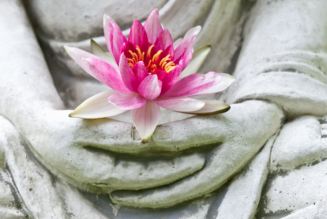
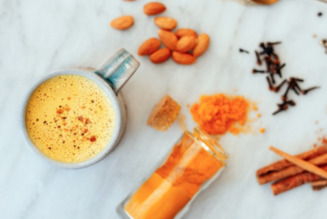
![Female Health: Amenorrhea [cessation of menses] – An Ayurvedic Perspective](https://healthyayurveda.com/wp-content/uploads/2015/07/1.-Amenorhea--327x219.png)

